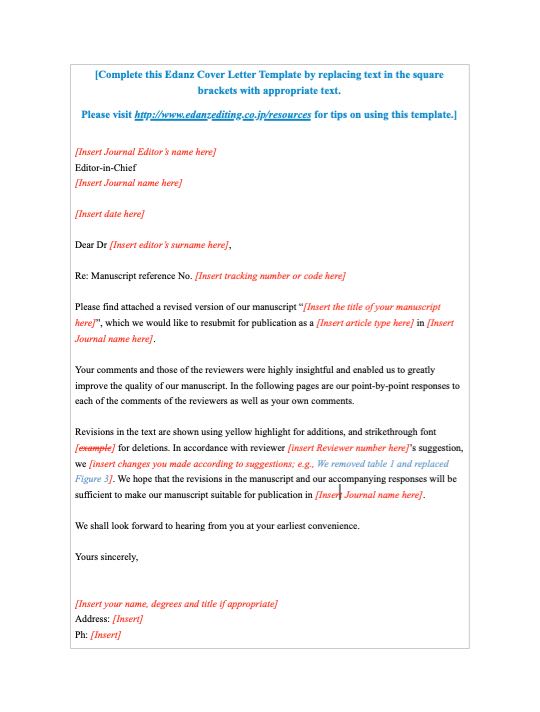Who can be a peer reviewer? Who chooses peer reviewers? Why are some peer reviewers good, while others are resented enough to get their comments posted on Twitter? These are among the most frequent questions about peer reviewers.
The very term “peer-reviewed” implies that research is authentic and valid. Peer reviewers are members of the scientific community who are experts in the field they’re reviewing. Their task is to provide objective critique and to help weed out papers not fit for publication.
Yet many questions persist about peer reviewers’ roles and responsibilities.
This article answers frequently asked questions about the peer review process, from who can be a peer reviewer to what makes a good peer reviewer to what ethical standards are placed on them.
What you’ll learn in this post
• Who can be a peer reviewer and how you can become one.
• The traits of good and bad peer reviewers.
• Ethical standards expected of peer reviewers.
• Do peer reviewers get paid?
• A way to recommend suitable, knowledgeable peer reviewers the next time you submit a scientific manuscript for publication.
Who can become a peer reviewer?
It’s often assumed that a peer reviewer has a terminal degree (e.g., Ph.D., M.D., Psy.D.). In fact, that’s not true.
Anyone with expertise can be a reviewer
Technically, anyone can become a peer reviewer if they have expertise in the field or on the topic of a paper needing review. Peer reviewers are usually researchers or scholars who have expertise in the same or a related field as the work being reviewed.
They could be professors, researchers, or other professionals with advanced degrees and a track record of publication. This includes Ph.D. students.
And no conflicts of interest
Peer reviewers must have no conflicts of interest (COIs) concerning the article or journal. COIs in academia are when your personal goals compete with your scientific responsibilities. Specific COIs include having a personal relationship with the author or editor, whether as a co-author or a friend.
Most publishers won’t allow you to review a paper if you’ve previously co-authored with the authors submitting the new work. The Elsevier journal Information and Software Technology, for example, specifically states reviewers must not have co-authored with any of the submitting authors within the last 3 years.
Another cause for disqualification is if a candidate reviewer has a financial interest in the article’s getting published, such as owning stock in a related company or being on its board of directors. Non-financial conflicts of interest can include relationships with funding bodies or personal (e.g., religious or political) convictions.
Ultimately, the onus is on the reviewer
Naturally, a journal can’t fully vet all these potential conflicts, so as a reviewer, you’re expected to honestly assess your qualification.
Who chooses peer reviewers?
In most cases, the journal’s managing editor will choose peer reviewers. However, authors can also suggest peer reviewers when they submit a manuscript for publication. This saves the editor time and helps achieve a more effective review. (Read about how to suggest reviewers and see our Reviewer Recommendation service here.)
These choices are based on criteria including:
- Do they have expertise in the subject area of the article?
- Is the reviewer from a diverse background (i.e., based on geographic location, gender, career stage)
- Are they independent from other selected reviewers for that article?
- Are they free of conflicts of interest?
Why should you become a peer reviewer?
Becoming a peer reviewer has many advantages for science, your field, and for yourself as a researcher.
Contributions to your field and to greater science
As a peer reviewer, you’ll contribute to and improve science by critiquing others’ work. You’ll raise questions on whether the methods and results are sound. This builds trust in science because we, the readers, know the study held up against this rigorous evaluation process. Perhaps the process itself found problems that needed fixing, and the study was then revised, making it even more sound and valuable.
Filter out inadequate science
You’ll also help journals filter out bad articles from being published. You’ll help ensure that articles with poor research methods, reliability, or theoretical background don’t make it to publication.
This is important because it ensures the field doesn’t get skewed by improperly conducted research, which can lead to the wrong conclusions and, even worse, to harmful outcomes in society when it uses the publication as a reference.
Become a better researcher
Becoming a peer reviewer also helps you improve your own skills as a researcher. By carefully evaluating and thinking about others’ work, you brush up your critical thinking skills. It helps you stay up to date on developments in your field. You’ll see things from other perspectives and reshape ideas of your own. And by viewing and critiquing others’ work, you can improve your scientific writing skills.
Writing and critical thinking skills are transferable. You can teach them in your courses, to your grad students, and to colleagues. In this way, you also help others in your network improve.
Raise your profile
Becoming a peer reviewer can help you boost your scientific profile and grow your network. It introduces you to reputable journals and connects you with other academics and scholars, including big names in your field. You can add them to your professional networks and, these days, to your social networks (e.g., LinkedIn and Research Gate), which is key for collaborations and expanding your research interests.
Also, when you review for a journal several times, you may get invited to be on the editorial board. This can greatly boost your academic profile and further highlight your expertise in the area.
Don’t worry, you’re not the judge, jury, and executioner
You may have an exaggerated view of what’s required of a peer reviewer. Yes, you have to review the science. And yes, you have to pay attention and be thorough. And, no, you likely won’t get paid. Yet there are limitations. You don’t, for example, have to rerun tests and delve into the raw data (see more on the limits of peer review here).
Peer review is a rewarding experience, in a sense, it’s your duty, and it needn’t stress you out. Quite the opposite, it should improve both you and the work you’re reviewing.

What makes a good peer reviewer?
A good peer reviewer is clear, constructive, and has expertise in the topic they’re reviewing. They clearly and tactfully communicate their feedback back to the authors. They criticize the work in a constructive fashion, looking to improve it and help it toward publication wherever possible.
Critique is not personal, and peer reviewers, who often are not identified to the authors, should not hide behind that blind of anonymity. They’re real people, and so are the authors.
This means telling authors what they could have done differently rather than attacking their character and sending them a massive list of things they did wrong.
Good, or effective, peer reviewers critique based on knowledge and expertise. They comment on what they know. If something is out of their scope of knowledge, they communicate that (to the editor and/or the authors) and give their best effort. Good reviewers know their own limitations.
A good peer reviewer will:
- Set aside the time and focus to thoroughly evaluate the work.
- Critically evaluate whether the theoretical background logically leads to the research gap and research questions proposed in the article.
- Consider if the research has novelty; i.e., Does it answer the question, “So what?”
- Evaluate the methods and determine if they can answer the research questions.
- Determine whether the analysis conducted is derived from the methods described and has been conducted soundly.
- Make sure arguments flow logically, and watch out for contradictory statements.
- Determine if the conclusion reflects what was found.
- Evaluate whether the research questions have been effectively answered.
- Identify weaknesses, areas for improvement.
- Tell the editor about major problems like fraud or conflicts of interest.
Reviewers will also provide feedback in a timely manner: prompt response to an invitation and prompt completion of the review. Peer review can take a very long time, and this should not owe to reviewers’ taking excessive time.
Good peer reviewers are organized. They maintain logical and coherent comments. For example, they might start by summarizing what the paper was about and how it contributed to the field. Then, they can delve into the nitty gritty section by section. This will make it easier for the authors to understand and respond to the review.
Reviewers, though perhaps notorious on for being rude and personal, should maintain a courteous and professional manner. Just like the authors when they respond. Reviewers should show, in their words and tone, that they gave the authors’ work their full attention. Even if the critique is negative, they should try to add a few words of encouragement. Reviewers can be mean and scathing, or cooperative and interested in seeing the manuscript published. The latter should be the goal.
What makes a bad peer reviewer?
Do the opposite of what’s discussed in the previous section and you’re probably a pretty bad peer reviewer. Bad, or ineffective, peer reviewers don’t take the time to thoroughly understand the work and don’t provide constructive feedback. They may also make rude, biased, or negative comments that are either unduly harsh or, at worst, biased and personal.
A bad peer reviewer might:
- Fail to identify flaws in the design, analyses, or argumentation.
- Not tell the authors how to improve their manuscript.
- Not review the full manuscript.
- Not tell the journal editor about potential major issues like plagiarism or suspected falsified data.
- Not tell the journal editor about suspected conflicts of interest.
Ineffective peer reviewers may also reply very quickly with “Looks good.” or “What a mess – rejected.” This provides no substantive information to the authors or editor, whether good or bad. It does a disservice to the authors, the journal, and science.
Another attribute of a bad reviewer is unfairness and bias toward the article for reasons unrelated to the paper itself. The reviewer may be against a certain nationality, gender, or race. To the contrary, the reviewer might favor authors from their own country. They might have a mission of getting more of their compatriots published. Indeed, their cause may be valid, but it’s independent of the science itself. Concerns like that should be left to the journal and publisher.
A recent study examined 397 tweets from academics about improper peer review comments they’d received. They found that unprofessional comments can be categorized mainly as “aggressive” – comments such as “This is a disaster. I could continue but you see my point” and “The authors are amateurs.” Personal opinions, especially mean-spirited and discouraging ones, are not evidence-backed and have no place in peer review.
Are peer reviewers paid?
Academic peer review is typically unpaid. Peer reviewers receive their reward through acknowledgments from journals and the scientific community, boosts of their academic profile, and the satisfaction of advancing good science.
The main reason peer reviewers are unpaid is that reviewing is considered part of their job as researchers and scholars. The majority of peer reviewers are academics and employed in universities or other research institutions and are expected to engage in scholarly activity, which includes peer review.
Some journals provide small honorariums or other compensation to peer reviewers. This recognizes the time and effort they put into reviewing. But these honorariums are typically small and only intended to cover the costs of reviewing, rather than to provide a financial incentive.
In one example, the open-access journal, Collabra: Psychology, pays small sums to reviewers and editors. Profiting off peer review is generally considered antithetical, but debates have also sparked some researchers to demand payment. This is due to biases and inconsistencies in the peer review system, as well as the long hours that peer review can require (totaling an estimated 100 million hours in 2020!).
Regardless, the peer review system will likely continue to be mainly unpaid and to rely on researchers’ goodwill and commitment to scientific integrity. Determining who should get paid for what article and what amount would likely create more issues than solutions.
For example, it could mean higher journal subscription fees and publication fees to offset remuneration to reviewers. Or reviewers might only get paid if the article was ultimately accepted. The negative ramifications for the review’s integrity are obvious.
Peer review response letter template
Struggling to write that letter to the editor and peer reviewers? Try this free template! Simply replace the placeholder text with your own information, edit, and send with your detailed responses!
★ Pro Tip: Remember to double-check the spelling of the journal editor’s name!
What ethical standards are placed on peer reviewers?
Because the peer review process largely relies on reviewers’ willingness to take part, everyone involved in peer review must behave ethically. Maintaining ethics is implicit in the review process.
Most journals have guidelines and codes of conduct for peer reviewers; for example:
- Science has ethical guidelines
- PNAS provides a list of ethical considerations, such as how to provide constructive criticism
- PLOS ONE has a list of ethics in publishing practice
Ethics in peer review includes personal, if not implicit, ethics, such as only accepting invitations when you know you have the necessary expertise. Even if you love doing peer review or you’re eager to put the experience on your CV, don’t accept all invitations. Your comments won’t be useful to authors and will disservice the journal and the field.
Ethics also covers personal honesty and transparency. Declare any conflicts of interest or competing interests to editors. Make sure your reviews are objective and not influenced by anyone else or by any other agenda.
Treat each article with confidentiality. Don’t share the data, results, or ideas mentioned in the paper with your colleagues before it’s officially published. Similarly, don’t use any part of the article for your own advantage, such as copying a piece of code or analysis. Actions like these make researchers wary of submitting their papers for review, and less trusting of the review process.
Finally, be respectful and professional. Criticism is part of your job, but avoid unduly harsh comments, and don’t be critical without being constructive. True, language issues can sometimes make reviewer comments come across rougher than intended. But, even then, a peer review can have their comments edited for tone and appropriateness before going back to the editor and then the authors.
For an authoritative overview of ethics for peer reviewers, COPE’s “Ethical guidelines for peer reviewers” is highly recommended.
How to get ideal peer reviewers for your journal submission
The Edanz Reviewer Recommendation service solves a problem that both journal editors and researchers like you may face – finding suitable peer reviewers. No matter the scientific niche, we’ll assign an Edanz Expert who will review your work and do the searching for you, providing you with a list of recommended reviewers.






